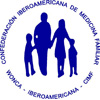Evaluation of the primary care attributes in Rio de Janeiro
Resumo
Introduction: The primary care attributes – first contact access, longitudinally, comprehensiveness, coordination, family and community orientation are associated with service quality and intervention effectiveness and efficiency. The Health Secretary of Rio de Janeiro is implementing a deep health reform to qualify the primary care services offered to its population through the Clínicas da Família.
Objective: We compared health centres that operate with the traditional model (model B and C) with those with the Family Health Strategy (FHS, model A), by means of the instrument PCATool-Brazil, applied to 436 doctors.
Methodology or experience description: We develop a transversal study interviewing primary care doctors using the Primary Care Assessment Tool, validated in Brazil in 2012. Statistical method utilized was variance analysis.
Results: In the FHS the average scores and the percentage of high scores (≥ 6.6) in relation to the attributes of first contact access, longitudinally, coordination (systems information) comprehensiveness, family and community orientation are significantly higher than in the traditional health centres. The same happens when these attributes are condensed as the PHC Essential or General Score.
Conclusions or Hypothesis: The results demonstrate that in Rio de Janeiro, the health reform that objectives FHS qualify through the Clínicas da Família produces greater presence and extension of primary care attributes.
Palavras-chave
Texto completo:
PDF (English)Apontamentos
- Não há apontamentos.
Este periódico é de responsabilidade das associações:
Apoio institucional:







